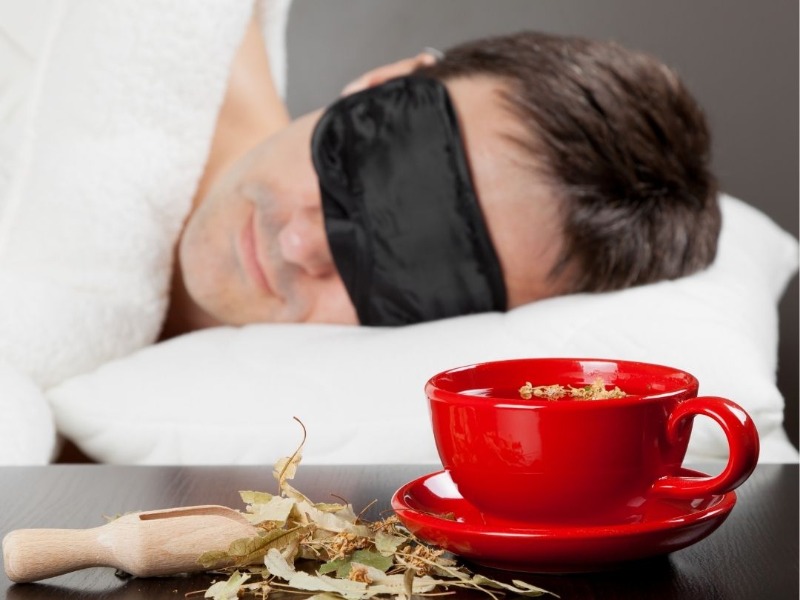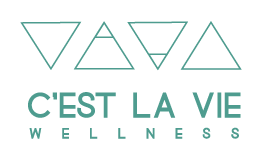Sleep 101: Nutrients for Better Sleep

by Lyne Desforges, Holistic Nutritionist & Culinary Nutrition Expert
Eat Your Way to Better Sleep
There is no doubt that nutrition and sleep are closely intertwined. Going to bed hungry or too full can impact the quality of your sleep. It is usually recommended to stop eating a couple of hours before bedtime to ensure a sound sleep.
If you struggle with the quantity and quality of your sleep, you may want to incorporate more of these nutrients into your diet. In general, avoid a diet high in sugar and refined carbs as it can negatively impact the quality of your sleep.
Melatonin
Melatonin is the sleep hormone and its production decreases naturally as we age. In this study, researchers found that drinking 16oz of tart cherry juice for 2 weeks increased sleep by an average of 85 minutes a night.
Melatonin foods: bananas, black beans, chickpeas, oats, oranges, pineapple, tart cherry juice.
Tryptophan
Tryptophan is an amino acid that is found in small quantities in food and it is better absorbed when eaten as part of a low-protein, high-carb meal. Tryptophan is the precursor to serotonin, the feel-good hormone. Serotonin then converts into melatonin.
Tryptophan foods: almonds, dates, eggs, millet, potatoes, poultry, sea vegetables, tofu/soybeans.
Calming teas
Adding gelatin to your tea may help induce sleep. Gelatin contains glycine, an amino acid that has been studied for insomnia.
Sleepy teas: chamomile, ginger, lavender, lemon balm, passionflower, peppermint, valerian root, turmeric.
Good Fats
Good fats promote satiety and may prevent waking up in the the middle of the night feeling hungry. Good fats nourish the nervous system and the brain, which can reduce stress and anxiety.
Healthy Fat Foods: avocados, flaxseeds, mackerel, nut butter, olives, pumpkin seeds, salmon, sunflower seeds, tuna.
Magnesium
Magnesium deficiency has been linked to insomnia. Physical and mental stress can deplete your body of magnesium.
Magnesium Foods: cacao, kelp and sea vegetables, mackerel, nuts, seeds, spinach, tofu, & whole grains.
Fermented foods
There is a strong correlation between sleep and the gut. Good sleep encourages a healthy gut and a healthy gut encourages good sleep. Eating fermented foods will promote a balanced gut microbiome.
A Japanese study had a group of students take a placebo while another group took a probiotic for eight weeks leading up to exams and for three weeks after. Both groups experienced high stress during exams. The placebo group had fragmented sleep and difficulty falling asleep. The probiotic group observed that they had less difficulty falling asleep, that they maintained, and even strengthened their deep sleep and that they woke up feeling rested and refreshed. These findings suggest that the beneficial bacteria contained in the probiotic may have helped protect the students’ sleep during a stressful time.
Fermented Foods: kefir, kimchi, kombucha, miso/natto, olives, pickles, tempeh, and yogurt.
Neutraceuticals
It can be helpful to add some key nutrients through supplementation to really help the body achieve that restful state.
Magnesium: The best form for sleep is magnesium bis-glycinate. Magnesium is effective for RLS (restless leg syndrome), sleep, anxiety, and to relax muscles. Alcohol depletes magnesium in the body.
Melatonin: This is an effective supplement to help reset your natural circadian rhythm, as long as it is taken at the same time every day. It is a useful supplement for shift workers, jet lag, ADHD, anxiety, to regulate hormones and to improve sleep quality in general. It is a potent antioxidant that has protective effects against many types of cancers.
GABA: This amino acid is usually used to reduce anxiety and stress but it is worth mentioning since many people who suffer from sleep disturbances have an overactive mind. Some researchers are studying the possible link between GABA deficiency and anxiety or sleep apnea.
L-theanine: This nutrient is found naturally in green tea and is used to reduce anxiety. L-theanine offsets the caffeine content of green tea so it mitigates the jitters some experience with coffee.
We Are Here to Support You

Educating, motivating and inspiring have always been important aspects of my professional journey. Through workshops, cooking classes, customized menus & recipe books, and online programs, I guide clients towards healthier food choices and eating habits.
